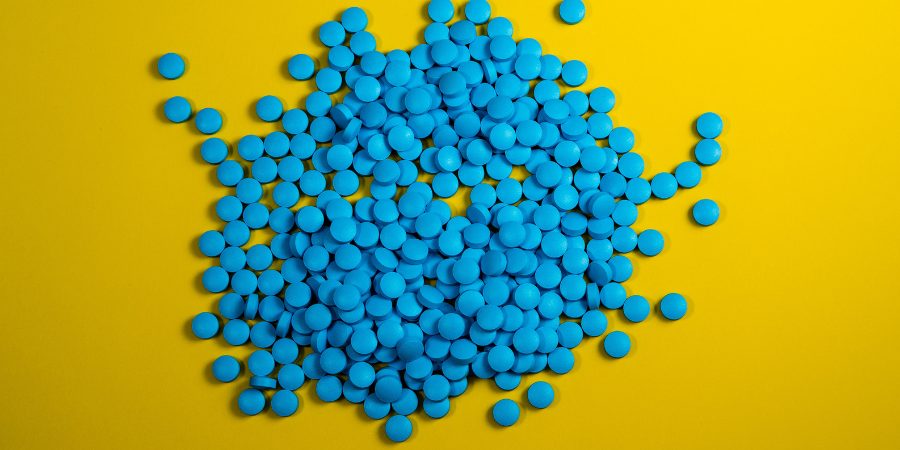Last Updated:
August 12th, 2025
Benzodiazepine Detox | Withdrawal Process
Benzodiazepines have been some of the most widely prescribed drugs in the world, handed out for anxiety and sleep problems and even to help people quit drinking. For decades, they were seen as a safe and effective way to calm the mind, but we now understand just how addictive they can be. If you are looking to overcome benzodiazepine addiction, detox is the place to start. It is a medically managed step-down process that gives your brain and body a chance to recover and gets you ready for the next phases of benzodiazepine rehab.

The importance of detox from benzodiazepines
Even when you are ready to stop using benzodiazepines, your body may not be. Benzos work by slowing down your brain and nervous system, so when they’re taken away, the rebound can be intense. The shock to your system triggers uncomfortable and often overwhelming benzodiazepine withdrawal symptoms, which can last for weeks and bring a huge risk of relapse. The most common but difficult include:
- Rebound anxiety that feels more intense than before you started taking benzos
- Difficulty sleeping or full-blown insomnia that won’t ease with usual remedies
- Panic attacks or a constant feeling of dread that seems to come out of nowhere
- Shaking, muscle tension, or body aches with no clear cause
- Overwhelming sensitivity to light, sound or touch
- Confusion, poor memory or difficulty concentrating
- Mood swings, irritability or bursts of anger
- Depersonalisation (the feeling that you’re outside your own body or not quite real)
- Depression or a deep emotional flatness that makes it hard to feel anything
- In severe cases, hallucinations, paranoia or seizures
Drug detox gives your nervous system a way to relearn, step by step, how to function without depending on benzos. That relearning process takes time, support and medical oversight to help you get through withdrawal and come out safely on the other side. It prepares you physically and mentally for the next phases of rehab treatment and prevents any complications during the early stages of addiction recovery.
Struggling with an addiction? If you are ready to seek help, reach out to us today, and a member of our compassionate team will help you find the best option for starting your recovery journey.
The detox treatment process for benzodiazepines
Benzodiazepine detox starts with a full assessment where you will discuss what you’ve been using, your dose, usage patterns, duration and how you are feeling physically and emotionally. That is how your detox team creates a safe and steady plan that aligns with what your body and mind need.
As detox gets underway, medical staff will keep a close watch on how you’re responding. Benzodiazepine withdrawal doesn’t always follow a straight line so it is important that your plan is flexible and your team are ready 24/7 to step in and provide what you need.
You will be encouraged to rest, eat light meals and stay hydrated, even if your energy is low. If at any time you are overwhelmed or unsure of what’s happening, someone will always be nearby to help. All of this is crucial for giving you the chance to begin healing physically so you have the strength and energy to tackle the other aspects of drug addiction.
Benzodiazepine drugs you can detox from
There are many forms of benzodiazepines, so detox is offered as part of various drug rehab programmes. These include:
Benzodiazepine withdrawal symptoms timeline
Out of all the substances you can become dependent on, benzodiazepines often have the longest and most drawn-out withdrawal process. The timeline for benzodiazepine withdrawal can vary depending on your health, how addicted you are and which type you have been using, but withdrawal tends to come in stages.
The initial wave might include anxiety and insomnia, with emotional and physical symptoms escalating over the first couple of weeks. After that, some people start to feel a lot better, but for others, benzodiazepine withdrawal symptoms can persist for months.
This is sometimes referred to as protracted or post-acute withdrawal, and it’s one of the reasons why benzodiazepine detox and recovery need to be approached with patience, care and expert support.
Is it safe to detox from benzodiazepines at home?
Detoxing from benzodiazepines at home might seem like a quiet way to handle things, as you can grit your teeth and ride it out. But benzodiazepines change how your brain and body operate, and without proper support, coming off them can be physically dangerous. Dual diagnosis mental health and addiction issues are very common, and the stress of home detox can also ramp up psychological symptoms, putting you at further risk.
Even tapering too quickly on your own can trigger intense rebound symptoms like panic, paranoia and heart palpitations that can spiral fast. In a professional detox clinic, the process is gradual, monitored, and managed by professionals who know what to look for. That difference can reduce your chances of relapse and may even be life-saving.
Begin detox for a benzodiazepine drug today
Detoxing from benzodiazepines isn’t something you need to figure out alone. Addiction Helper can guide you to the right treatment and make sure your detox is managed properly from start to finish. Reach out to us today, and we will keep you steady, supported and informed.
Our compassionate team are ready and available to take your call, and guide you towards lasting the lasting addiction recovery you deserve.
Frequently Asked Questions
(Click here to see works cited)
- Liberty House. “Benzodiazepine Detox | Withdrawal & Detox Timelines.” Liberty House, 14 February 2025, https://www.libertyhouseclinic.co.uk/benzodiazepine-detox/. Accessed 23 May 2025.
- Mind. “Withdrawal effects of benzodiazepines.” Mind, https://www.mind.org.uk/information-support/drugs-and-treatments/sleeping-pills-and-minor-tranquillisers/withdrawal-effects-of-benzodiazepines/. Accessed 23 May 2025.
- UK Addiction Treatment Centres. “Benzodiazepine Detox | Benzo Withdrawal & symptoms | UKAT.” UK Addiction Treatment Centres, https://www.ukat.co.uk/detox/drug/prescription/benzodiazepine/. Accessed 23 May 2025.


